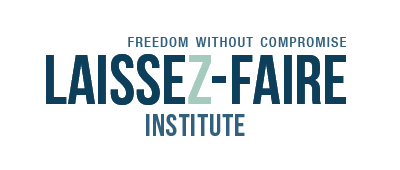What are the unintended consequences of the war on drugs? To answer this question, we must first try to figure out what its causes are: the reason for the prohibition of drugs has to be the intent to produce a certain set of consequences. Does it achieve these desired consequences, or is it more successful at achieving other, unintended consequences? In this essay, I focus particularly on the war on drugs in the U.S. since its consequences are most visible there, and since the U.S. government often acts as a leader in worldwide drug prohibitions, aggressively pushing other countries to follow suit.
Let’s consider first some historical reasons of the war on drugs. For instance, what did Harry Anslinger, first Commissioner of the Federal Bureau of Narcotics, have to say about cannabis, today’s most widely used drug? “Most marijuana smokers are Negroes, Hispanics, jazz musicians, and entertainers. Their satanic music is driven by marijuana, and marijuana smoking by white women makes them want to seek sexual relations with Negroes, entertainers, and others. It is a drug that causes insanity, criminality, and death -- the most violence-causing drug in the history of mankind.” What could possibly be the intended consequences of a policy based on this kind of prejudiced statement? Obviously, if the point of the policy is to address some purely imaginary problems, then there won’t be any intended consequences at all.
One of the actual consequences of the war on drugs is that more than half a million Americans who have done nothing wrong (in the sense of infringing on another person’s rights) are imprisoned because of it. Is this an intended consequence? If it were, would that be enough to acclaim the policy as efficient at achieving its goals? If the point of the war on drugs were for the Land of the Free to become the country with the world’s largest prison population, then it could sure be called a great success.
Other intended consequences could be to stop violence... or to stop non-violence: Sometimes drug use is accused of leading to “pacifism” and passive behavior, other times of leading to violence and dangerous behavior. An extreme example of such contradictions is a recent TV ad by the Office of National Drug Control Policy that suggests that staying at home smoking pot is a much less risky behavior than almost anything else. More generally, if the point of a drug policy is to protect people from some “danger”, what exactly is it protecting them from if it throws them in jail (where they are at risk of sexual abuse, physical violence, diseases, poor living conditions, etc.) for doing something a lot less dangerous than living in jail, something in fact far less dangerous than many perfectly legal activities?
Some other negative effects attributed to drug use include: costs on “society”, loss of productivity, danger of drugged people for other people, crime by drug users to finance their addiction, health risks for users, and loss of moral values. This list is not exhaustive, but in many cases the prohibition of drugs is defended on these grounds, and thus we can consider that the intended goal is either to limit these effects for every individual concerned, or to limit the number of individuals affected. Does it achieve any of this? No. The number of people having tried an illegal drug is enormous, be it in the U.S. or in other countries. In fact, since the number of people using or having used illegal drugs is often higher in the U.S. or other “tough on drugs” countries than in more “tolerant” countries (particularly in Europe), the effect of drug prohibition on reducing the number of users is dubious at best.
If drug prohibition doesn’t significantly reduce the number of users, does it at least limit the negative effects caused by or to each individual user? No. Instead, it worsens the very problems it claims to address. These problems are then used as pretexts for more funds for and harsher enforcement of the same wrong policy, thus worsening the problem even further, leading to a vicious circle of interventionism.
The health risks for users increase because of the lack of information on a black market. Most drug-related deaths are caused by the variable purity of the product – a problem that would not exist in a legal market with quality control. The costs of the war on drugs are much higher than the “costs” that drug users inflict upon society. The danger and crime caused by drug users increase because of the war on drugs. The fact that prohibition is the main cause of street crime and gang wars is obvious. The harsher the penalties for drug trafficking are, the more dangerous the job of a drug dealer, the greater the profits, and therefore the greater the dealer’s willingness to take risks (such as being heavily armed and ready to fight rival dealers or the police), and finally the more violence in the streets.
The loss of productivity is not caused by the vast majority of drug users who enjoy their drugs while leading a normal, productive life. It is caused by the war on drugs, which increases the costs of drugs and thus the incentive to get the money illegally to buy them and excludes people from productive society by locking them in jail and leaving them with a criminal record afterwards and pushing them into criminal milieux. Besides, one’s productivity is his own – nobody owes anything to “society” and “society” doesn’t owe anything to anybody. If an individual has the potential to be a great entrepreneur but chooses to keep a minimum-wage job instead, he will gain less money for himself, and contribute less wealth to society as a whole – does that make him a criminal? The choice is each person’s to make – to argue otherwise would mean that an individual is a slave to the wants and needs of others.
Moral values are shattered by the obvious contradictions of an immoral policy – one that prevents people from making moral choices by coercing them into obeying unjust laws. Laws that are arbitrary since some products are banned on grounds of health risks and addiction, although other legal products might be worse under those very same criteria. A policy, furthermore, that claims that dozens of millions of peaceful Americans should in fact have been thrown into jail because they used illegal drugs at some point in their lives. How is a kid supposed to know right from wrong when the State tells him that a large part of his friends who didn’t hurt anybody are or should be in prison serving Mandatory Minimum Sentences, often longer than sentences handed out for murder or other violent crimes?
Are there any other unintended consequences of the war on drugs? Well, there’s at least one worth mentioning: the war on drugs, in many cases, stops vital medical use of cannabis and inhibits further medical research on new life-saving medicines. Obviously, the usual arguments about “destroying one’s life” by taking drugs seem rather absurd when the drug can precisely save somebody’s life. What could possibly be the moral case for forbidding people from trying to save their life, and forbidding other people from trying to help them?
One might also wonder if there are some consequences that might be intended but are never admitted as such. Social control over whatever is deemed undesirable by some people could be one of them; lust for power, best achieved by a totalitarian “everything is illegal” State might be another. Once everything is illegal, even harmless behaviors, the State can jail anyone, thus having virtually unlimited power. In some countries, this is the case for regular business activities: to start a business, one can either pay a bribe or pay a fine. Is there really a moral difference between the two in such a case? The war on drugs, more than any other legislation, has led to unprecedented infringements on individual rights, ignoring even the (constitutional) limits that were supposed to constrain the State’s power: It allows the seizure of the house of a person accused of a drug offense, even before being convicted, warrantless searches, no-knock military-style raids often resulting in the death of innocent people, and even the State’s undercover agents actually encouraging people to break the law.
Another hidden reason could be the revenue that some people enjoy thanks to the prohibition. This might include corruption, increased sale of often more dangerous and more addictive products such as tobacco or alcohol that some illegal drugs could be substitute products for, sale of products of some industries that hemp-based products could be in competition with, and cartel profits for successful drug lords.
Furthermore, good intentions, or “good” intended consequences, are not enough to justify a policy. Even if a policy achieves its claimed goals, that doesn’t necessarily make it a good policy. The end must be a “good” one to begin with, and the means to achieve it must be “good” too (in our view, “good” could be defined as: benefiting some people without harming others, that is, helping an individual to attain his own objectives while not infringing on private property rights of any other individual).
The State is a monopoly of violence, and violence is not a means to be used lightly. A policy proposal about banning one thing or the other always implies violence to enforce the laws. Violence is a means that can be legitimately used only in few cases, namely, to stop some other violence. An individual’s property rights should only be infringed if he has himself infringed on someone else’s rights: that is not the case of someone buying, selling, producing or advertising legal or illegal drugs, even though some might consider these activities “immoral” or undesirable.
Can communism be considered a good intention? I don’t think so: to commit armed robbery on one group of people and give the money to another is not a good intention, nor is prohibiting private businesses. To try to coerce people into certain types of behavior (and rob them, too: of their drugs, their houses, their freedom, their lives) is not a good intention either. If a criminal claims, in court, that it was not his intention to actually kill the person he was furiously hitting with a crowbar, should this necessarily be enough to spare him murder conviction by considering that this was an “unintended consequence” of his actions, or if he claims that he killed a woman “for her own good” because her lifestyle displeased him?
Therefore, it would be misleading to consider the war on drugs merely “inefficient at achieving its goals”. Rather, the war on drugs has to be recognized as an economically absurd and morally outrageous policy to begin with. No wonder its “unintended” consequences are as destructive as they are. What would really be surprising and worrisome would be if the consequences of such a freedom threatening policy actually were positive.

